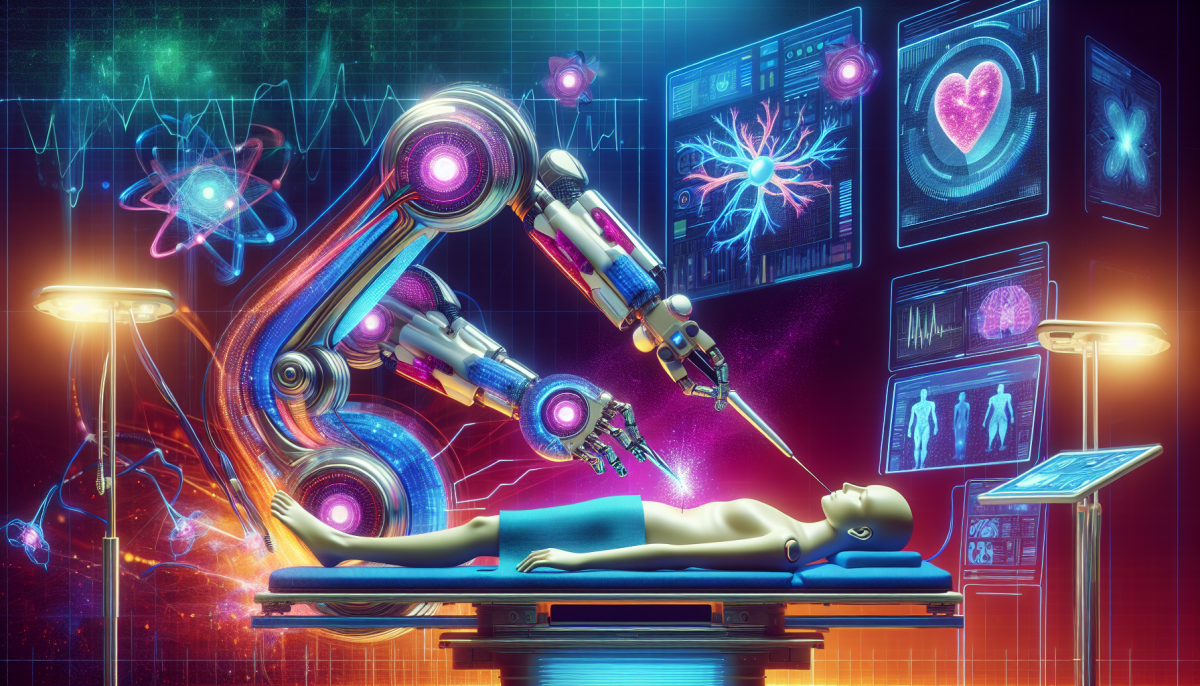AI is changing patient care in some pretty exciting ways! One of the biggest impacts is how quickly doctors can access patient information. With AI, medical records can be analyzed instantly, giving healthcare providers a clear picture of a patient’s health history. This means that doctors can make informed decisions fast, which is crucial in emergencies.
Another big change is how AI helps in diagnosing conditions. Instead of relying solely on human expertise, AI uses huge amounts of data to spot patterns that might not be obvious. For instance, AI algorithms are becoming really good at identifying early signs of diseases like cancer, often more accurately than the human eye. This early detection can lead to better treatment options and improved outcomes for patients.
AI isn’t just for diagnosis, either. It’s also helping personalize treatment plans. By analyzing data from a variety of sources—like genetics, lifestyle, and previous treatments—AI can suggest tailored therapies that are more effective for individual patients. This personalized approach means that patients can receive care that’s better suited to their unique needs, making treatments less of a one-size-fits-all solution.
Additionally, AI is improving the overall patient experience. Chatbots can handle scheduling or answer basic questions 24/7, freeing up staff to focus on more complex issues. This not only makes it easier for patients to access care but also reduces wait times. Plus, with AI-driven tools, patients can receive reminders for medications or follow-ups, helping them stay on track with their health goals.
Benefits of AI in Medical Practices
AI is changing the way healthcare works, and that's pretty exciting! One of the biggest benefits is how it helps doctors make faster and more accurate diagnoses. With AI analyzing patient data, symptoms, and medical history, doctors can get insights in a snap. This means they can focus more on patient care and less on paperwork.
AI also enhances personalized treatment plans. By evaluating individual patient data, AI can suggest tailored treatment options that are more likely to work for each person. This personalized approach can lead to better outcomes and a more efficient use of resources, making it a win-win for both patients and healthcare providers.
Another cool advantage is improved efficiency in medical practices. AI can automate routine tasks, like scheduling appointments and managing patient records. This takes a lot of pressure off staff, allowing them to spend more time on what truly matters: caring for patients. Plus, with AI handling data management, healthcare providers can reduce human error and improve patient safety.
Lastly, AI offers massive support in the field of research. Machine learning algorithms can sift through huge amounts of data to find patterns and correlations that humans might miss. This can speed up the discovery of new treatments and medications, ultimately benefiting patients on a larger scale. It's like having an extra brain on your team!
Real-World AI Success Stories in Healthcare
AI is making big waves in the healthcare scene, and there are some amazing stories to share. One standout example is how AI is helping doctors diagnose diseases faster. For instance, AI algorithms are being used to analyze medical images like X-rays and MRIs. This technology can spot early signs of conditions like cancer that even the most experienced doctors might miss. By giving healthcare providers a second pair of eyes, it’s leading to quicker treatment and better outcomes for patients.
Another inspiring story comes from the world of personalized medicine. Imagine a system that really knows your medical history and genetics. AI tools are doing just that by analyzing tons of data to help doctors create tailored treatment plans for patients. This means medications and therapies can be more effective and have fewer side effects. Patients feel more hopeful because their treatment is designed specifically for them, not just a one-size-fits-all approach.
AI isn’t just about diagnosing and treating diseases; it’s also great for improving hospital operations. Hospitals are using AI to manage everything from patient flow to staffing needs. With predictive analytics, they can anticipate how many staff members they’ll need on different days. This ensures that patients receive timely care, and doctors aren’t overwhelmed. Efficient operations mean happier staff and better experiences for patients.
Lastly, let’s not forget about virtual health assistants powered by AI. Many healthcare providers are integrating chatbots on their websites or apps. These friendly assistants can answer common patient questions, help with appointment scheduling, and even provide reminders for medication. This means less stress for patients and more time for healthcare professionals to focus on what really matters – patient care.
Future Trends in Healthcare AI Technology
As we look ahead, the role of AI in healthcare is set to grow even more profound. One of the most exciting trends is the increased use of AI in personalized medicine. With the ability to analyze vast amounts of data, AI can help tailor treatments specifically to an individual's genetic makeup, lifestyle, and preferences. This means more effective therapies and better patient outcomes!
Another trend to watch is the integration of AI into everyday healthcare tools. Wearable devices, like smartwatches, are getting smarter with AI features that can monitor your health in real time. Imagine a future where your watch can alert you to abnormal heart rhythms or remind you to take your medication based on your daily routines.
AI is also making strides in administrative tasks. Automated systems can streamline scheduling, billing, and patient record management, freeing up healthcare professionals to focus more on patient care. This reduces human error and speeds up processes, making the whole experience smoother for both patients and providers.
Lastly, AI technology is enhancing telemedicine experiences. Advances in natural language processing are making virtual consultations feel more personal and interactive. Patients will soon enjoy intuitive communication systems that understand their concerns and provide accurate responses, bridging the gap between doctor and patient, no matter the distance.



